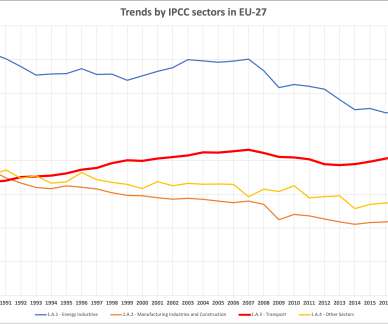3.8% drop in EU’s greenhouse gas emissions in 2019; transport emissions rise
Green Car Congress
JUNE 1, 2021
Total greenhouse gas emissions in the European Union (EU) decreased by 3.8% The large decline in emissions, achieved before the COVID-19 crisis, was mainly due to reduced coal use for power generation. The large decline in emissions, achieved before the COVID-19 crisis, was mainly due to reduced coal use for power generation.






































Let's personalize your content